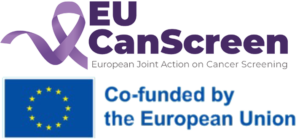Individual barriers
Summary
Achieving health equity in Europe requires clear understanding of individual barriers, and identification of strategies which increase cancer screening awareness, access, and uptake among the screening target group. This task
will entail activities organised within the following subtasks:
6.3.1: A systematic review of individual barriers and facilitators that improve participation rates in cancer screening. The systematic search will consider tools and strategies from relevant fields of study (communication, technological
sciences, medicine, etc.).
6.3.2: A case study to demonstrate how a data-driven approach can identify individual screening barriers and facilitators for non-participation in different screening programs and subpopulations.
6.3.3: Results of subtasks 6.3.2 and 6.3.1 will be combined to provide recommendations on how a data-driven approach can help prioritise approaches to addressing barriers and facilitators in cancer screening programs for in general public and sub-populations.
This task will be led by RSYD, Denmark.
Subscribe to our newsletter to get news and updates.
Subscribe to our newsletter to get news and updates.

The general objective of EUCanScreen is to assure sustainable implementation of high-quality screening for breast, cervical and colorectal cancers, as well as implementation of the recently recommended screening programs – for lung, prostate and gastric cancers. EUCanScreen will facilitate the reduction of cancer burden and achieving equity across the EU.
This project has received funding from the European Union’s EU4HEALTH Programme under the Grant Agreement no 101162959










